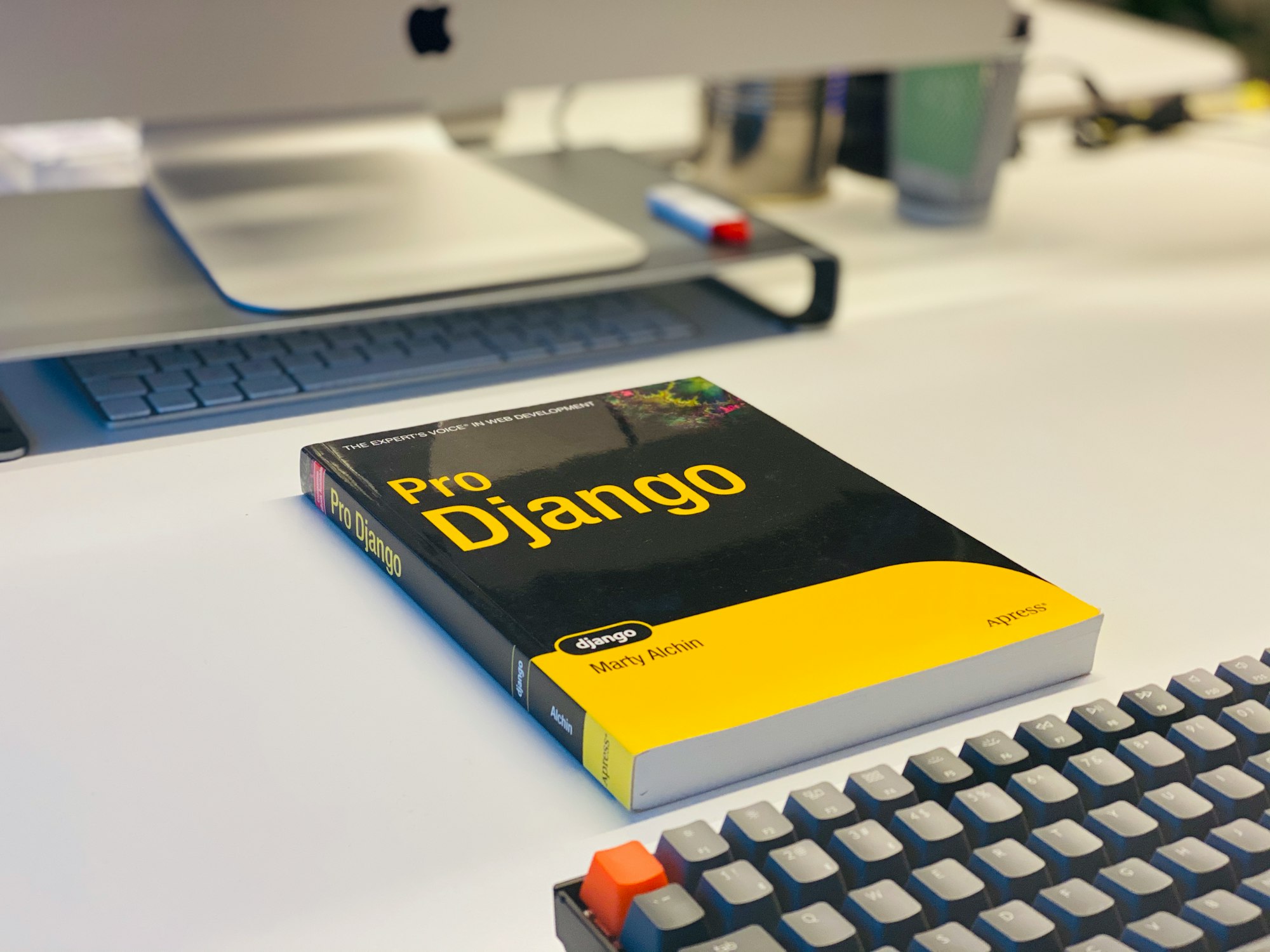19 Years of Django!. Is it Still Valid in 2024?
Table of Content
Django, a high-level Python web framework, remains a powerhouse for building web applications in 2024. Launched in 2005, it's renowned for its simplicity, scalability, and flexibility.
Despite the emergence of newer frameworks, Django has maintained its position thanks to a well-maintained ecosystem and broad applicability.
It continues to prove its relevance for startups, enterprises, and large companies alike.
History of Django
Django was developed by Adrian Holovaty and Simon Willison in 2003 while working at the Lawrence Journal-World newspaper. Their goal was to create an efficient content management system (CMS) for managing the newspaper's websites.
Officially released in 2005, Django—named after jazz guitarist Django Reinhardt—was open-sourced to allow developers to benefit from its rapid development capabilities.
Since its inception, Django has evolved into one of the most reliable frameworks for building robust, scalable web applications.
Is it still recommended?
Yes, Django remains highly recommended even after 19 years. Despite the continuous evolution of web development technologies, Django stands as one of the most powerful and reliable web frameworks. Here's why it continues to be a top choice:
Key Reasons Why Django is Still Recommended:
- Proven Stability and Maturity: With 19 years of refinement, Django offers exceptional stability, security, and robustness. Its comprehensive documentation and long-term support (LTS) versions make it an ideal choice for enduring projects.
- Scalability: Django's versatile architecture accommodates a broad spectrum of applications—from simple websites to large-scale platforms like Instagram and Pinterest. Its proven scalability has earned the trust of major companies.
- Rapid Development: Django's "batteries-included" philosophy, featuring built-in user authentication, URL routing, and ORM, empowers developers to create applications swiftly. This is particularly advantageous for startups aiming to launch products quickly.
- Robust Security: Security is Django's forte. It offers built-in safeguards against common vulnerabilities such as SQL injection, XSS, CSRF, and clickjacking. Frequent community updates ensure ongoing protection.
- Vibrant Community and Ecosystem: Django boasts an active, expansive community that provides extensive libraries, third-party packages, and tutorials. This community's dedication to Django's maintenance and evolution keeps it at the forefront of modern web development.
- Versatility: Django's adaptability spans various domains—from content management systems (CMS) and e-commerce platforms to APIs and social media sites. This flexibility ensures Django remains a top choice for diverse web applications.
Django in 2024!
Django remains a top recommendation for diverse projects in 2024, especially for startups, enterprise solutions, and large-scale applications.
The framework's maturity, battle-tested nature, modern capabilities, and consistent updates make it an excellent choice for developers in both emerging and established organizations.
Startups benefit from Django's rapid development capabilities and built-in features, which accelerate time-to-market. For enterprises and large-scale applications, Django's scalability, robust security, and unwavering stability continue to prove invaluable.
Django Community
The Django community stands as one of the framework's strongest assets. It's renowned for its welcoming and inclusive nature, as well as its wealth of resources, comprehensive documentation, and helpful tutorials.
The Django Software Foundation (DSF) actively supports the framework's development, attracting contributions from developers worldwide.
Frequent updates, Long-Term Support (LTS) releases, and an abundance of open-source packages reinforce Django's viability for projects of all scales.
The annual DjangoCon conference brings developers together, offering invaluable opportunities for networking, learning, and sharing best practices.

Use Cases for Django
Django's versatility makes it suitable for a wide range of applications:
- Content Management Systems (CMS): Originally developed as a CMS framework, Django excels at building scalable content management solutions.
- E-commerce Platforms: Django's robust security and rapid development capabilities make it ideal for e-commerce sites, particularly in handling payment processing and managing large databases.
- Social Media and Networking Sites: Thanks to its scalability and ability to handle high traffic volumes, Django is a popular choice for building social media platforms.
- APIs and Web Services: The Django REST framework enables developers to quickly create powerful and flexible APIs.

Successful Apps and Companies Using Django
Django's flexibility and power are demonstrated by many successful applications and companies across various industries:
- Instagram: This leading social media platform relies on Django to handle billions of users while scaling seamlessly.
- Pinterest: The popular image-sharing and discovery platform uses Django for its backend, managing vast amounts of data and ensuring a smooth user experience.
- Spotify: The music streaming giant employs Django for parts of its backend infrastructure, handling complex functionalities like user recommendations.
- Mozilla: The Mozilla Foundation uses Django for various web operations, including its add-ons platform.
- The Washington Post: Uses Django to manage large-scale content publishing.
- Eventbrite: This event management and ticketing platform is built with Django.
- Disqus: A popular commenting system integrated into many websites, also uses Django.
These examples showcase Django's versatility and its ability to power a wide range of applications, from social media and content platforms to e-commerce and publishing systems.

Django for Startups, Enterprises, and Large Companies?
- Startups: Django is a startup's dream. Its rapid development capabilities, scalability, robust security features, comprehensive documentation, and ease of use empower startups to launch products swiftly and efficiently.
- Enterprises: For enterprises, Django shines in handling complex, large-scale applications. The framework's flexibility and security ensure that enterprise applications are not only scalable but also maintainable in the long run.
- Large Companies: Django has proven its mettle for large companies, as exemplified by Instagram and Pinterest. Its ability to handle millions of users, coupled with a robust architecture and strong community support, makes it a reliable solution for achieving long-term stability and scalability.
FAQs
1. Is Django suitable for small projects? Absolutely. Django's "batteries-included" philosophy equips even small projects with powerful built-in features like authentication, ORM, and an admin interface.
2. Can Django scale for large projects? Indeed. Django is engineered for scalability. Many of the world's largest sites, such as Instagram, have leveraged Django to handle millions of users seamlessly.
3. How easy is it to learn Django? For Python developers, Django offers a gentle learning curve. Its excellent documentation and supportive community make it accessible to beginners and seasoned developers alike.
4. Is Django secure? Absolutely. Django comes fortified with built-in security features, protecting against common vulnerabilities like SQL injection, cross-site scripting (XSS), and cross-site request forgery (CSRF). This robust security framework makes it an excellent choice for developing secure web applications.
5. Can Django be integrated with frontend frameworks? Certainly. Django plays well with popular frontend frameworks like React, Vue.js, and Angular. Moreover, it can be paired with Django REST framework to build powerful APIs, offering versatility in your tech stack.
Final Note
As we navigate through 2024, Django stands tall as a highly valid and reliable choice for web development. Its well-established community, robust feature set, and remarkable adaptability make it a perfect fit for projects of any scale—from budding startups to sprawling enterprises.
Whether you're crafting a simple blog or architecting a massive social media platform, Django arms you with the tools and flexibility to turn your vision into reality.












